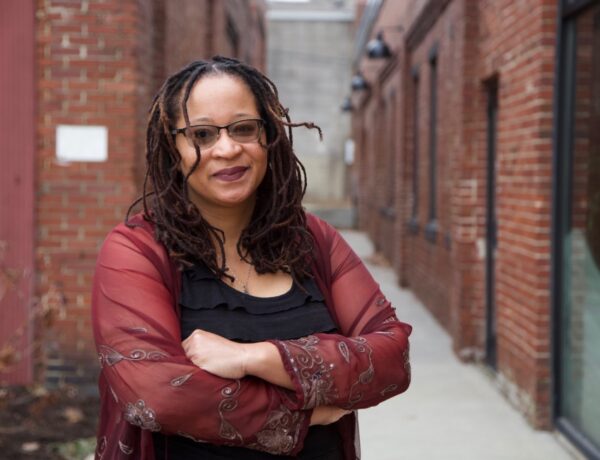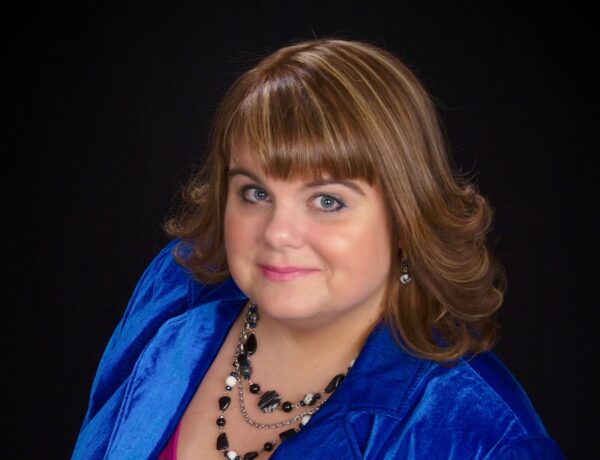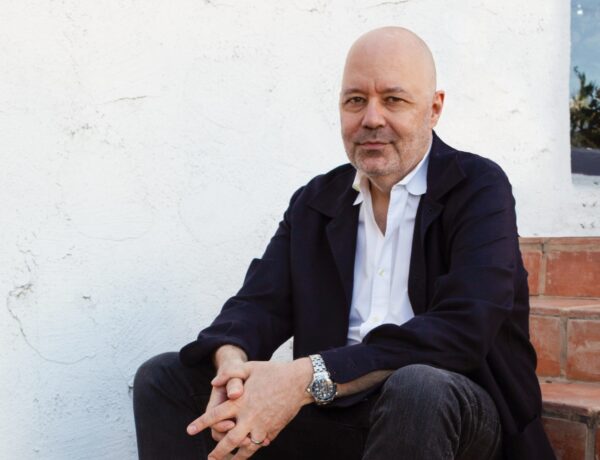Michelle Tea is a highly acclaimed writer, known for her exceptional work in the fields of memoir, fiction, poetry, and children’s literature.
Her latest book, Knocking Myself Up, is one of over a dozen books she has published to date. Michelle is the recipient of several awards, including the Lambda Literary Award for Best Lesbian Fiction for her memoir Valencia and the PEN/America Diamonstein-Speilvogel Award for the Art of the Essay for her essay collection Against Memoir. She is also a 2021 Guggenheim Fellow and has received the Rona Jaffe Awards.
Aside from writing, Michelle has made significant contributions to the literary world through her cultural interventions aimed at promoting accessibility and visibility for queer writers and artists. She is the founder of RADAR Productions, a Bay Area literary non-profit, where she served as Executive Director for over a decade. Michelle is also the co-founder of the international performance tour Sister Spit and the founding editor-at-large for the online parenting zine Mutha.
In addition to her writing, Michelle is also known for her work in podcasting and live tarot readings. She produces and hosts the mystical podcast Your Magic and fronts a weekly tarot show on Spotify Live. Michelle is also the author of the popular how-to book Modern Tarot, which encapsulates her more than 30 years of experience as a tarot reader.
Each week, we publish a new daily writing routine from a famous author. Subscribe to our newsletter so you don’t miss out!
Hi Michelle! We’re delighted to have you as a guest on Famous Writing Routines. For our readers who may not be familiar with your work, could you please give us a brief introduction to yourself?
I dropped out of college after a year ($), and shortly thereafter moved to San Francisco (1992) where there was a huge poetry open mic culture. It was largely self-taught, experimental, people writing about their own lives. I became a part of that, producing lots of work so I could participate.
I made my own poetry chapbooks (having made a couple zines, I knew how to do it), and eventually started my own all-girl (trans-inclusive) open mic, Sister Spit, in 1994, with the filmmaker Sini Andderson. It ran weekly and free for two years. I had briefly been in a band, and though I decided to stop playing drums to focus on writing, I had loved the experience of touring, and was inspired by Sister Spit on the road in 1997.
It has been on the road off-and-on ever since, always with a new collection of writers and performers! I stopped writing poetry and started writing short pieces of memoir. These eventually became my first two books, The Passionate Mistakes and Intricate Corruption of One Girl in America and Valencia. I continued writing and producing shows.
Eventually I became mentored by a gay male activist and grant writer who helped me take all my event production and create a n on-profit, RADAR Productions, which I ran for 13 years, a monthly reading series at the library, tours, awards and a writing residency. I published more memoirs – The Chelsea Whistle and Rent Girl, which is illustrated.
I also began editing anthologies – Pills, Thrills, Chills and Heartache (with Clint Catalyst), Without a Net, and It’s So You. My early poetry chapbooks were collected in the volume The Beautiful. I began writing fiction – the novel Rose of No Man’s Land, and a young adult fantasy trilogy McSweeney’s did: Mermaid in Chelsea Creek, Girl at the Bottom of the Sea and Castle on the River Vistula.
I created two literary imprints – the Sister Spit Books series at City Lights Publisher, where I also edited the anthology Sister Spit, and the Amethyst Editions imprint at The Feminist Press, which is still going, though I am no longer involved. I also started the online publication Mutha Magazine, for alternative parenting. I remain the Editor-at-Large.
I published an essay collection, How to Grow Up, and then a tarot how-to, Modern Tarot, and then a speculative memoir, Black Wave, and then another essay collection, Against Memoir, which won the Diamonstein-Spielvogel Award for The Art of the Essay.
I started writing kid’s books, first Astro Baby, which was meant to be a series but we only did two more – Libra in Decisions, Decisions! and a Scorpio one whose name I forget if you can believe it! After creating the international phenomenon Drag Queen Story Hour I published the kid’s book Tabitha and Magoo Dress Up Too. My most recent book is Knocking Myself Up, a memoir based on a blog I’d done for xoJane.com.
I write for many publications whenever I can – Harper’s, Cosmopolitan, The Believer, Artforum. I also do a weekly Substack, Dear Diary. I was awarded a Guggenheim Fellowship in 2021, as well as a fellowship from Loghaven Residency. I am host and producer of the Your Magic podcast and its off-springs.
Your memoir Valencia won the Lambda Literary Award for Best Lesbian Fiction and was also made into a feature-length art film. Can you talk about the creative process behind turning your personal experiences into a successful book and film?
I badly wanted (still do!) Valencia to be turned into a feature film, but it wasn’t something I could make happen. However, having a lot of filmmaker friends, I figured I could get many people to make a short film. I invited 21 different filmmakers to each shoot a chapter of my book as a short, with a different cast and crew for each one.
I brought on my good friend, the artist and filmmaker Clement Goldberg to not only shoot a chapter but to help me produce it. Together we evaluated the shorts and, after a community screening of the raw footage in which we got feedback, had to make hard decisions, editing some filmmakers’ pieces down or outright omitting some of them.
It didn’t feel good but it was absolutely in service of the film being a watchable length, and as coherent as a film with a lead character who changes actors every five minutes can be! It’s one of my favorite things I’ve ever done. You can find it on Vimeo, part of the rental price goes to the St. James’ infirmary, which cares primarily for trans folk, sex workers and unhoused people in the Tenderloin of San Francisco.
As the founder of RADAR Productions, you have instigated many cultural interventions aimed at increasing access and visibility for queer writers and artists. Can you speak about some of the initiatives you’ve been involved in and the impact they’ve had on the literary community?
RADAR’s anchor program was the monthly RADAR Reading Series, which was both a reading and an engaged discussion, with cookies for all who participated (I made the cookies). It was a big deal for a lot of writers to get to read in the library and be paid! RADAR always served a lot of emerging and underserved writing communities.
But we also would pair them with really established writers like Dave Eggers, Lemony Snicket, Eileen Myles, Dorothy Allison, etc. It created a real community. Under RADAR, Sister Spit, which had been dormant, got back on the road. We did an annual poetry chapbook contest, where the winner got a beautifully published chapbook.
We did a lot of other programming throughout the year, such as at the annual National Queer Arts Festival or the San Francisco Public Library. We were able to give one grant one time, and it went to Justin Chin, to help him complete a book. For six years we ran the Radar LAB in Akumal, Mexico, a free writing residency that was open to anyone who had ever read or performed at a RADAR or Sister Spit event.
We paid their airfare if they were unable, housed them, fed them and provided disciplined writing time, literary conversation and also readings. Many books were worked on at the retreat, books by Maggie Nelson, Eileen Myles, Joey Soloway, Thomas Page McBee, Myriam Gurba, Annie Sprinkle, Brontez Purnell, Raquel Gutierrez, lots more! We really helped elevate queer writers in San Francisco and beyond, by paying folks, commissioning work, and just creating a community where they were respected, valued and celebrated.
Discover the daily writing habits of authors like Stephen King, Neil Gaiman, and Gillian Flynn with Famous Writing Routines Vol. 1 and learn how to take your writing to the next level. Grab your copy today!
You are also the co-founder of the international performance tour Sister Spit and founding editor-at-large for the online parenting zine Mutha. How have these experiences influenced your writing and the themes you explore in your work?
Sister Spit absolutely helped me get published – before I had any books I had a low-key national ‘readership’ from doing these tours, and that was impressive to publishers. I know it has helped other writers become agented and/or published, and our European tour helped get Valencia into translation!
Being in the literary community helps keep me writing, so it helped in that way too, not only growing my profile, which has helped in publishing. Mutha really helped me get a literary community about weirdo mothers who write, which I needed at that time, as I was trying to get pregnant!
What does a typical writing day look like for you?
I don’t always write. I do so many things, and even just keeping up with what I’ve already done takes on a bit of a life of its own. I’ve become part of a small group that writes together on Wednesdays, so during those times I am working on a collection of essays around sex and death.
Last Wednesday I also started the day writing my Substack, and kept writing that into Thursday. It was about art and sex and death! Today I have been keeping up with emails and tarot reading appointments – I read tarot on the side, and it takes up a lot of my time.
I recently wrote an essay that will open a book, and I have to do an edit on it today, it’s due! I’m beginning a weekly memoir workshop tonight, so I have to prepare for that and edit student work. Later this week I’m having a live conversation at an art museum with Maggie Nelson, so I have to prepare for that, and I’m doing a class visit the following day, at USC.
Friday I’m doing some consulting, one with a writer friend starting a new project, another with a playwright friend starting a residency. That doesn’t pay, but it’s important! I share custody of my 8-year-old every other week with my co-parent, and since I don’t have my kid this weekend I will spend Saturday and Sunday doing edits on a book proposal for an essay collection about witchcraft I just got back from my agent.
Since many days I don’t write at all it seemed better to show you what a week looks like, though no week is typical. I also meet with my Your Magic podcast team twice a week, to keep up on podcasts and an app we’re developing!
Can you speak on your experience of being the recipient of a 2021 Guggenheim Fellow, and how that impacted your writing career?
It impacted it mightily in that it came right as I was going through a very unexpected divorce and was having a freakout about how I would support myself and my son. The prior years I’d been living off my ex’s income, as they had had a very good tech job. I still made money off my writing, but it is inconsistent, a constant hustle. The hope was that I would find my way into television writing and then support us, but it hasn’t happened.
The Guggenheim was just what I needed to take care of myself, turn away from the endless, unpaid TV writing hustle, and return to writing books. I received it during COVID so I didn’t get to go to the fancy party and hobnob with physicists! I do believe it is impressive but I am unsure what if any doors it has opened for me. I can only assume it has? I never know exactly what prompts someone to offer me an opportunity, but having a Guggenheim on my CV surely helps!
If you could have a conversation with an author throughout history about their writing routine and creative process, who would that person be and why?
Oh, jeez! This is so hard, because I am obsessed with history and writing and hate having to pick only one! What comes first to mind is Anais Nin, because her dedication to her diary was really her main thing, and it is an epic work of autofiction, and I just love her struggles and relate to them. Jean Genet, for sure. James Baldwin is THE master of fiction. Violette LeDuc. And Aldous Huxley, whom I would also seduce.
What have been some of your favorite reads recently?
Re-reading Anais Nin’s journals has been super juicy and fun, and inspiring. Laurie Stone’s Streaming Now, which was just shortlisted for a PEN Award, is also a genius work of autofiction! The illustrated travel journal Border Crossings by Emma Fick. Lisa Hanawalt’s Hot Dog Taste Test. I love reading weird work by weirdos. It inspires me.
What does your current writing workspace look like?
I just got a new internet provider and the best place for the modem is sadly in my desk, so that’s here now. A 1099 from my literary agent. A bunch of tarot decks I still haven’t put away from when I did an Ask the Tarot Live on Tiktok last week (The Cosmo Tarot, The Cosmic Slumber Tarot, The Alchemical Tarot, Oracle of the Loas, Gateway of Light Activation Oracle, Vessel Oracle and The Sacred Cycles Oracle).
A Tzedakah bank filled with pennies which belongs to my son; it’s a Jewish generosity practice we began when he was really little and abandoned and we’re trying to get back into it. He wants to donate to a cancer organization because one of his favorite YouTubers is a cancer survivor.
My datebook because I was just booking tarot readings and making plans with friends. A dish of crystals in epsom salt. These cool little stacking caddies filled with pens, small notebooks, stickers. My laptop! My tripod/ring light thingy for when I go live on social media. Lots of knick knacks, etc on the windowsill.
Affiliate disclaimer: Some links on this website are affiliate links. We may earn a small commission if you make a purchase through these links, but only promote products we truly believe in. We disclose affiliate links and give honest reviews.



No Comments